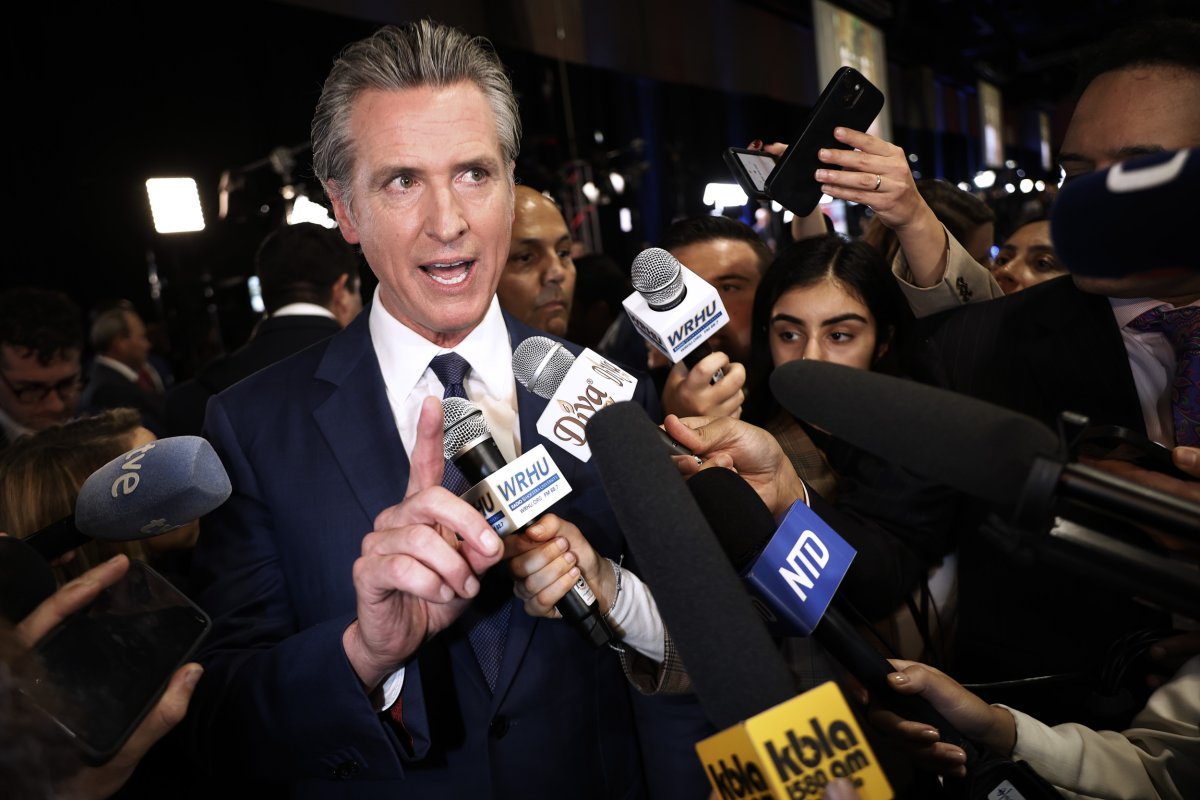
Low-rise jeans and belly button piercings are back on runways and streets, coinciding with a viral hype around weight-loss drugs like Ozempic. Are "magic" injections and Y2K nostalgia the end of body positivity? "She doin' Ozempic, tryna be different," US artist Travis Scott raps. From popular songs to comedy sketches and runway shows: The diabetes drug Ozempic is taking over Hollywood and also conquering pop culture.
As Oprah Winfrey , Stephen Fry, Kelly Clarkson, Elon Musk and other celebrities have all confessed to their use of weight-loss drugs, who hasn't heard of the "magic" injection by now? The rising popularity of Ozempic is backed by a strong return of Y2K culture, a trend that embodies the nostalgia of millennial fashion, pop culture and music — a nd, of course, icons like Paris Hilton, Britney Spears , Christina Aguilera and Kate Moss. With its low-rise jeans, belly button piercings and miniskirts, the Y2K revival has brought back the obsession for extreme thinness that defined the '"heroin chic'" era. Ozempic was introduced in 2017 as an injectable medicine for diabetes.

Its active ingredient is semaglutide. The drug went viral on social media some two years ago after influencers started sharing their unusually quick weight-loss experiences. Today, the hashtag #ozempic has millions of views on TikTok and Instagram.
At some point, the drug began being used not only by people struggling with obesity or diabetes but also by those who simply wanted to lose a bit of weight for summer. It has become so popular that there is an ongoing shortage for diabetes patients who need the drug. Novo Nordisk, the Danish pharma giant that produces Ozempic and Wegovy — the latter another semaglutide drug that has been specifically approved to manage weight loss — is currently the most valuable company in Europe, worth almost as much as the entire German car industry .
Ozempic meets Y2K Ozempic even had its five minutes of fame during Berlin Fashion week when the clubwear brand Namilia sent a model down the runway in an "I love Ozempic" T-shirt (top image). The provocative tank top spurred backlash from social media users and the press alike, with some deeming the move as "toxic" and "superficial." Following the digital backlash and a cease-and-desist letter from Novo Nordisk, fashion brand Namilia announced that the shirt was never intended for sale, but rather as "an ironic statement slogan top commenting on the pressures of fame, celebrity culture and unrealistic body ideals.
" 'Heroin chic' is back Khan, a German-Turkish curvy model who walked Namilia's runway show (though not in the controversial "I love Ozempic" shirt), doesn't understand the outrage. She believes the message of the polemical shirt was not to celebrate Ozempic but rather to criticize how fashion is going back to "heroin chic," an aesthetic associated with skinny, pale models like Kate Moss or Gia Carangi, a heroin user who died of AIDS complications. Glamorizing drug abuse and size 0, the rather problematic term "heroin chic" was coined after photographer Davide Sorrenti, whose photographs helped popularize the look: pale skin, dark circles under the eyes and a very skinny figure.
For Khan, who prefers to go by her first name only, "heroin chic" is yet another term that makes trends of bodies. "Every few years, there is a new trend. 'Heroin chic' is definitely having a major comeback in the industry.
Before, it was body positivity, but since a year and a half, we are seeing less curvy models on the runways," she says. Bye-bye body positivity? As one of the few curvy models in the industry, Khan feels the comeback of the size 0 ideal. "I often got jobs confirmed and then canceled after they checked it with the styling because of my size, as happened with a traditional Parisian high-fashion house," she tells DW.
Particularly in the high-fashion industry, Khan says, tall, skinny, white models are once again being preferred, echoing the controversial legacy left by designers like Karl Lagerfeld . Among other things, Lagerfeld is remembered for fatphobic statements such as, "Nobody wants to see curvy models on the runway" and for calling singer Adele "a little too fat." The latest report from Vogue Business confirms Khan's observations: In the autumn/winter 2024 season, less than 1% of models in fashion shows in New York, London, Milan and Paris were plus-size.
'Skinny never went out of fashion' Paula Villa Braslavsky, a sociology and gender studies professor at the University of Munich, says that being skinny never really went out of fashion, neither on the runways nor on the streets. "Society has always judged weight," Villa Braslavsky says. "It has been a moral issue since the late 19th century.
If you are overweight, you're considered lazy, stupid, uneducated, morally corrupt or uninterested." Villa Braslavslky fears that with their normalization, weight-loss drugs like Ozempic could intensify body-shaming. Staying thin and healthy with a miracle drug? To view this video please enable JavaScript, and consider upgrading to a web browser that supports HTML5 video "For women, the perception of what is the 'right' weight has always been more limited than for men," Villa Braslavsky notes.
"The boundaries are stricter because women are historically judged primarily on their looks. Too skinny, too fat, too muscular, too beautiful or not beautiful enough — women face criticism no matter what." 'Y2K is not just for skinny people' The "heroin chic" comeback and the Ozempic hype are not stopping Khan from embracing her Y2K fits, neither on the runway nor on the streets.
There are still brands for which body positivity is not just a trend, she says, naming Sinead O'Dwyer, Ed Hardy and Namilia as examples. "If they would really celebrate Ozempic, they wouldn't send curvy models down the runway. And I wasn't the only one," she explains.
In her opinion, Namilia is "just being honest for highlighting the controversy around the drug, because unfortunately, people really do love Ozempic." So does the Y2K-fueled Ozempic hype mean the end of body positivity? Khan's answer is clear: "No, not in a million years." Edited by: Elizabeth Grenier, Brenda Haas and Cristina Burack.










